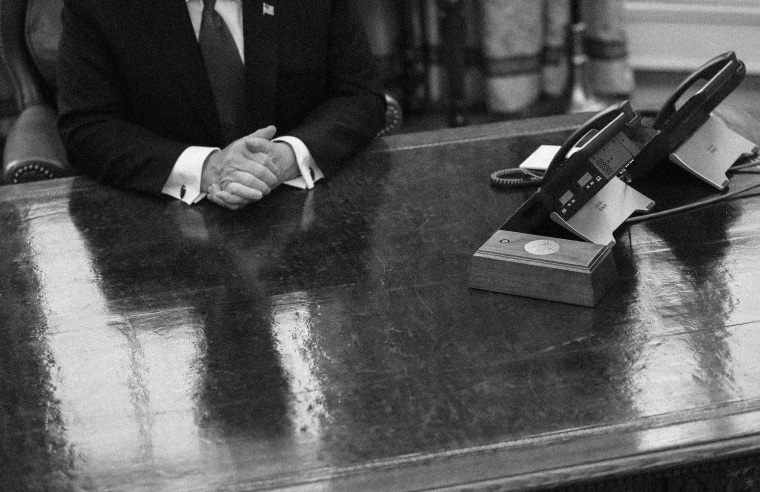House Democrats have reintroduced a sweeping legislative package meant to protect against the kind of presidential abuse of power Donald Trump carried out throughout his time in the White House. Passing that package might become a critical case for testing just how far Republicans have turned away from democratic norms as they continue to defer to Trump and his authoritarian political style.
On Tuesday, Democrats unveiled the Protecting Our Democracy Act, a bundle of bills that calls for a laudable set of new constraints on presidential power. A great deal of it is centered on enshrining safeguards against the shattering of norms and bald corruption we saw under Trump, like prohibiting presidents from firing inspectors general without good cause. But ultimately the purpose of the reform package is not to mull on the past, but to prevent it from repeating itself.
The package includes a wide range of reforms, which, per The New York Times, include:
- Bolstering the Constitution’s ban on presidents taking “emoluments” (payments) from foreigners
- Making it harder for the president to use pardons in bribery-like contexts
- Making it harder to spend or covertly freeze funds contrary to congressional appropriations
- Accelerating lawsuits over congressional subpoenas
- Prohibiting foreign assistance for elections
- Restricting temporary presidential appointees, who can circumvent Senate confirmation
- Keeping the statute of limitations from expiring while presidents are in office
- Boosting protections for whistleblowers
The reforms are meant to tackle many of Trump’s most egregious abuses of power and echo the post-Watergate reforms. After President Richard Nixon’s scandal-fueled resignation, Congress passed sweeping reforms meant to rebuild trust in the political system, and it enacted policies ranging from limiting government surveillance powers to re-envisioning campaign finance rules to ethics reform. The bills under the Protecting Our Democracy Act could play similar roles.
Crucially, GOP lawmakers have supported some of the policies under the Protecting Our Democracy Act before.
As with any major legislation today, Democrats will face the fundamental challenge of developing a filibuster-proof majority to pass them through the Senate, which means winning the support of at least 10 Republicans. With most legislation this can be a lost cause, but there is reason for at least some very, very cautious optimism.
These bills are part of one package, but they can be broken up and attached to other legislation, and crucially, GOP lawmakers have supported some of the policies under the Protecting Our Democracy Act before. For example, Republicans have backed legislation that would curb a president’s abilities to tap extra powers by declaring a national emergency, as well as bills calling for more transparency in White House logs of contacts.
The historical expansion of executive power over time is a bipartisan phenomenon, and theoretically, efforts to rein in that trend should have some bipartisan appeal. Consider that, according to the Times, the Biden administration is already pushing back on some of the new proposals, including disclosure requirements for communications about clemency recipients and empowering lawmakers to sue the executive branch. The objections are a clear symbol that the beneficiaries here aren’t tied neatly to party or ideology, but they reflect a broader commitment to restricting the power of the executive branch and robust democratic norms.
The Trump era intensified and expanded Republican efforts to undermine democracy by disenfranchising voters and baselessly casting aspersions on the integrity of the electoral system. But the Protecting Our Democracy Act could be an opportunity for some narrower pro-democracy reform that could theoretically be supported by lawmakers from both parties.
Realistically speaking, Republicans are eager to deny Democrats any legislative wins. And if all these bills are presented as an indictment of Trump, it could further dampen the possibility of GOP cooperation. Ultimately if the GOP completely shuns these bills, it will provide another piece of evidence that the Republican Party has lost interest in even the optics of democracy.

